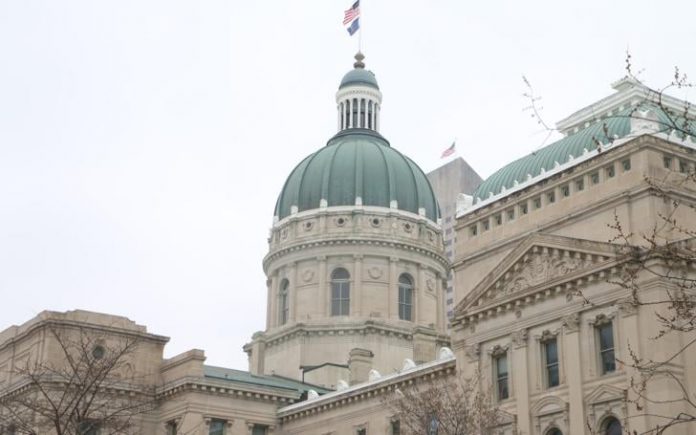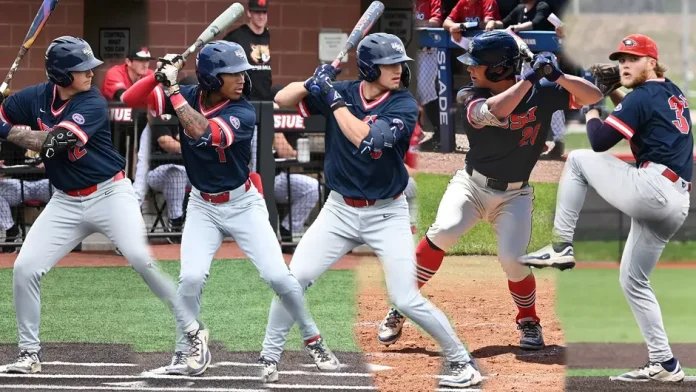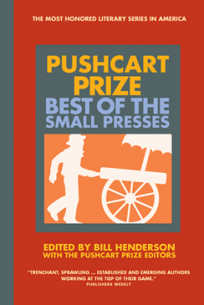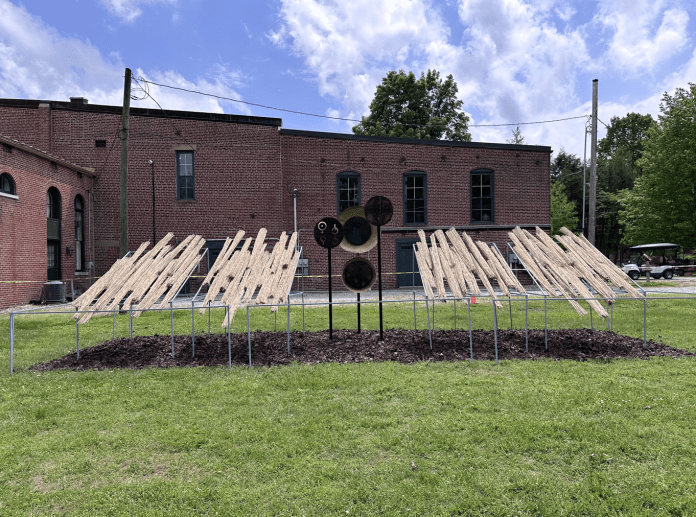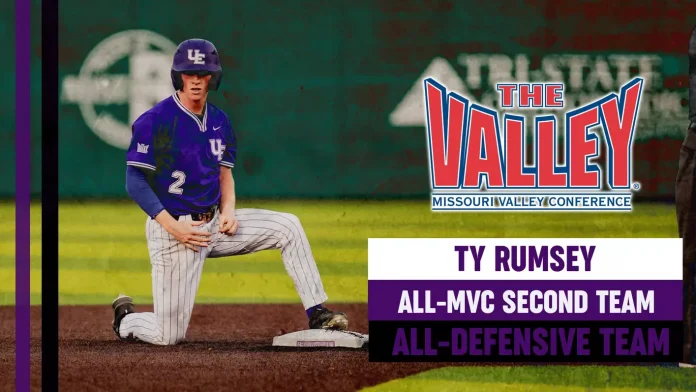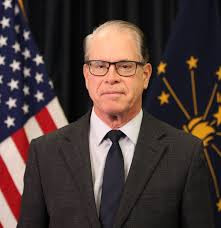-
Indiana Gov. Mike Braun has been signing into law a slew of bills changing voting and the administration of elections that passed through the legislature during the 2025 session even though the November 2024 election did not bring any claims of widespread voter fraud or concerns about ballot security.
Nearly 20 voting and election bills were filed in the Indiana Statehouse this year, and while two measures, described by voter rights’ groups as the most egregious, died in the legislature, others that landed on Braun’s desk, the groups say, will limit access to the ballot box. Among the new laws are those that will make school board elections partisan, prohibit students from using their college IDs as proof of identification when voting, require proof of citizenship from some naturalized citizens and allow more poll watchers at voting places.
Julia Vaughn, executive director of Common Cause Indiana, said in 31 years of lobbying for her organization at the Statehouse, she has never seen anything like this year’s flood of election-related bills.
“This is an assault on democracy,” Vaughn said.
In past legislative sessions, Vaughn said, one or two “bad bills” would be filed that took election policy backwards. This year, the General Assembly is acting with no reason or evidence of wrongdoing, she said. Language from statutes in other states, such as provisions about dating absentee ballots, have been inserted into some of the Indiana bills, while issues that have already been litigated, such as voter IDs, are reappearing, she said. The result is real consequences for Hoosiers going—or trying to go—to the polls.
“I wish legislators had to take a Hippocratic Oath like doctors (do) to do no harm because now what they’re doing is truly going to harm voters,” Vaughn said. “It’s making voting less accessible.”
Indiana is not an outlier. The Voting Rights Lab, a national nonpartisan organization promoting free and fair elections, is tracking 1,657 bills that are being considered in Statehouses across the country that will impact voters and the administrations of elections. State legislatures have “unrivaled power” to shape election policies, and state lawmakers around the nation are introducing and debating bills that could significantly alter voter behavior, according to the VRL.
Rep. Timothy Wesco, R-Osceola, chair of the House Elections and Apportionment Committee and author of several election-related bills, acknowledged the number of voter and voting bills filed this year was not spurred by any glitches or problems in the November 2024 election, saying Indiana “has been blessed” in that it has not had a lot of controversy about the outcomes of elections at the state and local levels.
Still, the Osecola Republican defended the voter and election legislation. He said they are part of Indiana’s effort, starting with former Secretary of State Connie Lawson, to keep elections as secure as possible and make sure voter registration rolls are accurate.
“We have many different county clerks and, I think, they all take an interest in seeing the election laws improved or glitches resolved or issues addressed in that respect,” Wesco said. “So we oftentimes get suggestions from our county clerks, individually or as a group, … that always results in a fair degree of legislation.”
Bringing ‘major consequences’ to future elections
According to its analysis, the Voting Rights Lab found that a majority of the voting and elections bills it is tracking, or 723 measures, would improve voter access or election administration. The remainder, 428 bills, would restrict access or administration.
The plethora of bills underscores the point made by Liz Avore, senior adviser at VRL. She said state legislatures have become the “major battleground” for shaping voting and election policies.
“Despite a secure and trusted election in November, some state lawmakers remain fixated on enacting highly disruptive changes to election law,” Avore said. “Like we saw after the 2020 election, many of these proposals are based solely on disinformation. What happens today has major consequences because the new laws written today will govern the 2026 and 2028 elections.”
In Indiana, a majority of the bills that have been signed into law are viewed as bad for Hoosier voters by voting rights advocacy groups. Indeed, Common Cause Indiana and the League of Women Voters of Indiana testified against several bills and rallied volunteers and supporters from around the state to call and to show up at the General Assembly to lobby their representatives and senators to oppose that legislation. Even as the session was winding down and election bills were getting passed, Common Cause was imploring Hoosiers to call the governor’s office in a last-ditch effort to derail some of the legislation.
The public outcry—along with the opposition from House Speaker Todd Huston, R-Fishers—has been credited with helping to stop two especially controversial bills. SB 201, which would have closed the state’s primaries by requiring primary voters to affiliate beforehand with a political party and then vote only on that party’s ballot, and SB 284, which would have cut the number of early voting days to 14, both stalled when they arrived in the House.
However, several other bills did survive the legislative process and got signed by Braun, despite fierce opposition, including:
- Senate Enrolled Act 10, which prohibits students from using their college IDs as their identification card to verify who they are when checking in to vote, requires county voter registration offices to confirm the status of voters who have not cast a ballot in the past two general elections and mandates the secretary of state try to execute agreements with other states to share voter registration information.
- Senate Enrolled Act 137, which requires the Indiana Bureau of Motor Vehicles to notify the Election Division of any individual who has temporary status registers to vote.
- Senate Enrolled Act 199, which simplifies the process to allow more poll watchers to be tapped for Election Day. Vaughn of Common Cause said the voting advocates are concerned the additional political personnel “will try to overstep what the law allows them to do and interfere in the administration of the election.”
- Senate Enrolled Act 287, which turns school board elections into partisan contests by requiring candidates to affiliate with a political party (Republican, Democrat or Independent) or chose to run as a nonpartisan.
- House Enrolled Act 1680, which requires county registration officials to request proof of citizenship from any individual who registers to vote using a temporary credential issued by the Indiana Bureau of Motor Vehicles.
Other measures, which Common Cause described as “pro-democracy bills,” did not even get a committee hearing. These include:
- Senate Bill 200, which would have eliminated straight ticket voting.
- Senate Bill 302, which would have allowed absentee ballots to be counted before the polls closed on Election Day.
- House Bill 1530, which would have permitted elderly, disabled and pregnant voters to go to the front of the line at polling places. Even though these three pieces of legislation were authored by Republicans, they went nowhere in the Statehouse.
Like many of his Democratic colleagues, Sen. J.D. Ford, D-Indianapolis, introduced election legislation during the 2025 session, but like all of the other election bills from his party, it did not gain any traction, which left him frustrated. His measure, SB 532, would have established a commission to review barcode technology that would enable voters and county clerks to track the whereabouts of absentee ballots in real time, the same way the U.S. Postal Service tracks mail and airlines track luggage.
“It is no different from me flying on Delta,” Ford said. “I can look at my app, I can see that my bag has been loaded (onto the plane), my bag has been offloaded, it’s on the carousel. I mean, I can track it through the entire process. Why can’t we do that with our ballots?”
Election security and ballot access concerns
One new election-related law, House Enrolled Act 1633, requires the Indiana secretary of state to do something the legislature has not done in seven years: study an election issue and submit a report. The new law calls upon the secretary of state to analyze the impact of moving municipal elections to presidential and non-presidential election years and of mandating all counties to use vote centers. Also, the law instructs three public hearings be held as part of the study.
Although the General Assembly has an interim study committee on elections, it has not been assigned any topics since 2017. The last time that interim committee did meet, it was tasked with studying how changes to Indiana election laws impacted voting in Indiana from 2000 through 2016. In its final report, the committee advised the state to continue to look for methods to keep an accurate and current voter registration list and to explore same-day voter registration as well as consider the public’s interest in voting by mail.
Wesco downplayed the interim elections committee inactivity, saying there have not been any significant issues to review. Lawmakers, he said, have been able to debate and vet the voting and elections bills that get filed during a legislative session.
“I feel that we have adequate time to sort through them and review them,” Wesco said. “I don’t really see any absolute benefit. It might be helpful in some context, but I can’t think of any examples.”
Regarding the new law banning the use of student IDs as voter identification, Sen. Blake Doriot, R-Goshen, said he authored and filed SB 10 after speaking to “concerned citizens,” which included people at universities. Colleges told him, he said, that they are not sure that they vet the students with enough rigor to verify citizenship status and residence when issuing the IDs.
“I’m all for trying to get more people to vote, but I don’t want people voting that shouldn’t be voting and I don’t want people voting in two places,” Doriot said. “You should claim a residence and be there and vote in that area.”
SEA 10 is now being challenged in federal court. Court US IN, Women4Change Indiana and a student at Indiana University–Bloomington filed a complaint seeking to block the state from enforcing the college ID ban. They are claiming the new law places “substantial, unjustified burdens” on young voters trying to vote, in violation of the First and 14th Amendments, and abridges young voters’ voting rights on the basis of their age, in violation of the 26th Amendment.
Ford said he is unsure why so many election-related bills were filed this past session, but he speculated that while some lawmakers across the aisle filed legislation under the guise of improving election integrity and security, their true intent was to strengthen the Republican supermajority in the Statehouse. The cumulative result is that all of these bills, he said, are “inching us closer and closer and closer” to voter suppression.
Consequently, Ford and his Democratic colleagues in the Senate and House resorted to offering multiple amendments to the Republican-authored bills. As an example, the Indianapolis senator and Democratic Reps. Sue Errington, of Muncie, and Pat Boy, of Michigan City, all offered amendments to SB 10 that would have stripped the prohibition against college IDs. The amendments all failed.
Ford said his strategy for the amendments was to keep Indiana’s elections safe and secure but also make voting easier for Hoosiers.
“I want to say that I join my colleagues in wanting safe and secure elections and in having good integrity for our elections because I think sometimes (Republicans) point to (Democrats) and say, ‘You guys don’t want that,’” Ford said. “I want that, but I also believe … that we can make it easier for voters to vote, and I don’t think that we do that.”
This article was published by TheStatehouseFile.com through a partnership with The Indiana Citizen, a nonpartisan, nonprofit platform dedicated to increasing the number of informed, engaged Hoosier citizens.
Indiana Citizen Editor Marilyn Odendahl has spent her journalism career writing for newspapers and magazines in Indiana and Kentucky. She has focused her reporting on business, the law and poverty issues.
Braun signs slew of election-related bills that critics say will harm Indiana voters
USI has five honored by OVC
EVANSVILLE, Ind. – University of Southern Indiana Baseball had five players honored by the Ohio Valley Conference in a release on Tuesday. USI received a pair of first team selections, two second team honorees, and a member on the All-Freshman team in votes by the league’s head coaches and the institution’s athletic media coordinators.
USI senior centerfielder Khi Holiday and junior designated hitter Cole Kitchens received first-team All-OVC honors. The duo is the first Screaming Eagles ever to be named to the OVC’s first team.
Kitchens leads USI at the plate with a .378 batting average (82-217) overall, while posting a team-best 60 RBIs and 12 home runs. The .378 average and 54 RBIs are the best marks in the OVC. The junior first baseman also leads USI and ranks second in the OVC in doubles (18) and total bases (138).
Holiday finished the regular season with a .341 batting average (72-211) and a team-best 64 runs scored and 24 stolen bases. The 64 runs scored and 24 stolen bases rank second and third in the OVC, respectively.
In conference play, Holiday leads the OVC and USI in batting with a .406 conference batting average in 27 games. He also ranks first in on-base percentage (.508) and third in runs scored (33) during the 27-game conference schedule.
USI junior shortstop Clayton Slack and sophomore third baseman Parker Martin were named to the OVC’s second team.
Slack, who boasts two of USI’s six walk-off game-winning RBIs this season, batted .299 (60-221) with 35 runs scored and 24 RBIs. The junior ranks third in the OVC in triples (3, 0.11 per game).
Martin concluded the regular season third on USI and sixth in the OVC with a .343 average (70-204) and second on the Screaming Eagles with 40 RBIs. He was third on USI and sixth in the OVC with a .371 conference batting average (39-105) in the 27 league games.
The sophomore third base also ranked 10th in the league in conference games in runs scored (25) and RBIs (25).
USI freshman right-hander Brady Watts became the fourth Screaming Eagle to be named to the OVC All-Freshman team. Watts was 0-1 with a 4.18 ERA and one save overall in 27 appearances, 26 out of the bullpen. He struck out 23 batters in 32.1 innings of work.
Watts had a 3.44 ERA in conference action, appearing in 15 of the 27 league contests. He had one save in conference play, striking out eight batters in 18.1 innings.
USI starts OVC Championship action at 9 a.m. Wednesday at Mtn Dew Park in Marion, Illinois. The Eagles, who are the seeded fifth, play the University of Arkansas at Little Rock, the eighth seed, in the opening game.
Southern Indiana Review poem included in The Pushcart Prize: Best of the Presses series
Natalie Shapero’s poem Quick Thinking, featured in the University of Southern Indiana’s Fall 2024 issue of Southern Indiana Review (SIR), will appear in the next The Pushcart Prize: Best of the Small Presses series. This series, published every year since 1976, is the most honored literary project in America, including Highest Honors from the American Academy of Arts and Letters.
“This means that Southern Indiana Review will be able to represent USI in bookstores, libraries and classrooms around the country—any time a reader encounters Shapero’s terrific poem and says to themselves, ‘Wow, where was this published?’ they’ll find the Southern Indiana Review, and this may be their introduction to our journal,” says Rosalie Moffett, USI Assistant Professor of English.
Published biannually by USI’s Southern Indiana Review Press, Southern Indiana Review presents a cross-section of emerging and established artists and writers whose work is both regional and national in scope and degree of recognition. With the support of the Indiana Arts Commission and National Endowment for the Arts, SIR is published in October and May by the University of Southern Indiana and sponsored by USI’s College of Liberal Arts.
USI New Harmony Gallery of Contemporary Art to feature Signals and Satellites to the Ancestors by artist Christopher Blay
The University of Southern Indiana New Harmony Gallery of Contemporary Art (NHGCA) is proud to present Christopher Blay’s temporary public art project, Signals and Satellites to the AncesStars, on view in New Harmony, Indiana, at Maclure Square through August. Situated at Church and Main streets, the installation forms a dialogue with the layered histories present along the shores of the Wabash River and New Harmony. Composed of mixed media including steel and bamboo, the work evokes the origin myths of the Osage and Myaamia nations who originally inhabited land in present-day Indiana and believed that their ancestors emerged from the celestial sky and from bodies of water.
The sculpture also pays homage to the early Black pioneers arriving in this area in the early 19th century in what was then the Northwest Territory, as these early homesteaders often navigated trails by starlight. This sculptural installation forms a satellite array made from steel and natural materials that “beams” out layered narratives invoking regional history.
Materials and motifs in the installation span past, present, and future, while water, spirit, technology and the celestial emerge as key elements throughout the composition. The central shape of a “Nitien,” an object made of brass that has four knobs, references the artist’s own tribe: the Kru people of present-day Liberia, who believe it to hold the divine power of water. The motif also honors the oral histories and origin traditions of the Kru people who arrived to settle the West African coast from the rough waters. During the Owen – Maclure experiment (1825–27) in New Harmony, which is currently celebrating its bicentennial, several preeminent scientists and educators arrived here by water on the “Boatload of Knowledge.”
The installation also references the “Golden Record” sent out in the Voyager 1 and 2 spacecrafts in 1977: a golden disc with data holding a message in a bottle from Earth’s residents to potential extraterrestrial life forms. This may be seen as echoing the Harmonie Society’s symbol of the Golden Rose, a marker of promise taken from early Martin Luther scripture found in the Bible’s Book of Micah that became an enduring symbol from when the Society arrived here in 1814 through to the present day.
New Harmony Gallery of Contemporary Art Curator Audra Verona Lambert reflects on the temporary installation. “Christopher Blay’s Signals and Satellites to the AncesStars coalesces aspects of layered histories that build New Harmony and Southwest Indiana as we know it today from a nuanced perspective that invites curiosity about the cultures that are present in the landscape, place names and topographies around us—both Earth-bound and celestial. The artwork brings clever approaches to information gathering to the USI community and the wider audience located in and around Vanderburgh and Posey Counties.”
Artist Christopher Blay is a Liberian American artist who lives and works in Fort Worth, Texas. His Nyesoa, Nitien, and the Alpine Stars video commission, SpLaVCe Ship sculpture and other works are on view through June 8 at Ballroom Marfa in Marfa, Texas. Blay’s work, SpLaVCe Ship, received honorable mention at the 2023 Grand Rapids Art Prize, Grand Rapids, Michigan.
This project is presented by the New Harmony Gallery of Contemporary Art with generous support from the Efroymson Family Fund and Connie Weinzapfel.
University of Evansville Choirs to Perform at Carnegie Hall
EVANSVILLE, IND. (05/20/2025) The soaring voices of the University of Evansville (UE) Choirs will soon echo through one of the world’s most prestigious concert halls, Carnegie Hall. Under the direction of Dr. Dennis Malfatti, UE’s Choirs have been invited to perform a special concert on Sunday, June 1, at 1:00 p.m. in the legendary Stern Auditorium / Perelman Stage. Presented by MidAmerica Productions, the performance will also feature the renowned New England Symphonic Ensemble.
This performance marks the third time the UE Choirs have performed at Carnegie Hall under Dr. Malfatti’s leadership, with previous appearances in 2011 and 2016. The choir is composed primarily of singers from UE’s choral program and will also include select vocalists from Harrison High School and Evansville Day School in Evansville, Indiana, as well as Campbell High School in Smyrna, Georgia.
As part of a series of guest performances taking place throughout the day, the UE Choirs will join other distinguished choral ensembles from across the country. They will be accompanied by the New England Symphonic Ensemble, a professional orchestra comprised of top-tier musicians from the Northeastern United States.
The UE Choirs began rehearsing the repertoire in early April and will depart for New York City on May 29. In preparation for the June 1 performance, the group will participate in two days of intensive rehearsals alongside the other visiting choirs.
UE’s Rumsey earns All-MVC Honors
The senior earns his first postseason honors with the Purple Aces
- LOUIS – Senior outfielder Ty Rumsey (Evansville, Ind. / North HS) has been recognized by Missouri Valley Conference head coaches for his play this season.
On Tuesday morning, the Missouri Valley Conference (MVC) announced its baseball All-Conference teams for the 2025 season. In a vote of the league’s 10 head coaches, Rumsey was recognized on two separate teams. Rumsey is one of 15 players named to the All-MVC Second Team and one of only three outfielders on the team. Rumsey was also recognized as one of the nine best defensive players in the Valley as part of the All-Defensive Team.
Rumsey had a breakout season at the plate for the Purple Aces in 2025. The senior led UE at the plate batting .333 on the season with 71 hits in 213 total at-bats that included 10 doubles, two triples, and four home runs. Rumsey was one of only two players on the Evansville roster to appear in every game of the 2025 season and was the only Ace to start every single game. Along with his iron man streak, Rumsey was a terror on the base paths, leading the league in stolen bases with 31 bags, the most by a UE player in 15 years since Eric Stamets set the Evansville program record with 43 in 2010.
Along with a strong year at the plate, Rumsey was a gem in the field for the Aces. He was third on the UE roster for putouts with 156 in 54 games to average just under two putouts a game. Rumsey also assisted on two other putouts with 160 catches on the season. The senior only was charged with two errors in 54 games for a fielding percentage of .988. Rumsey did not make an error in the final 19 games of the season and had a 32-game streak without an error earlier in the year.
Along with announcing the All-MVC teams, the Valley released its specialty awards for the 2025 season. Missouri State’s second baseman Nick Rodriguez was named the Joe Carter Player of the Year and was one of three Bears recognized with specialty awards. Also earning honors for Missouri State was utility player Max Knight as the Co-Newcomer of the Year and shortstop Tyler Epstein as the Defensive Player of the Year.
The Pitcher of the Year went to Belmont’s Joe Ruzicka while the other Co-Newcomer of the Year was UIC’s Luke Nowak. The Valley also had Co-Freshman of the Year in 2025 as Indiana State’s Jeremy Martinez and Murray State’s Conner Cunningham shared the honor. Murray State Head Coach Dan Skirka was named the Dan Callahan Coach of the Year for his first recognition in the Missouri Valley Conference.
EPD DAILY ACTIVITY REPORT
FOOTNOTE: EPD DAILY ACTIVITY REPORT information was provided by the EPD and posted by the City-County-County Observer without opinion, bias, or editing.
Gov. Mike Braun issues statement on execution of Benjamin Ritchie
“Since Benjamin Ritchie’s conviction in 2002, his case has been heard and reviewed numerous times by both state and federal courts, including the Indiana Supreme Court and the U.S. Supreme Court, never resulting in an overturned sentence. Ritchie’s final appeal for clemency was met with an unanimous recommendation from the State Parole Board that his execution proceeded as scheduled. Today, Ritchie’s sentence has been carried out as ordered by the court.” – Governor Mike Braun


